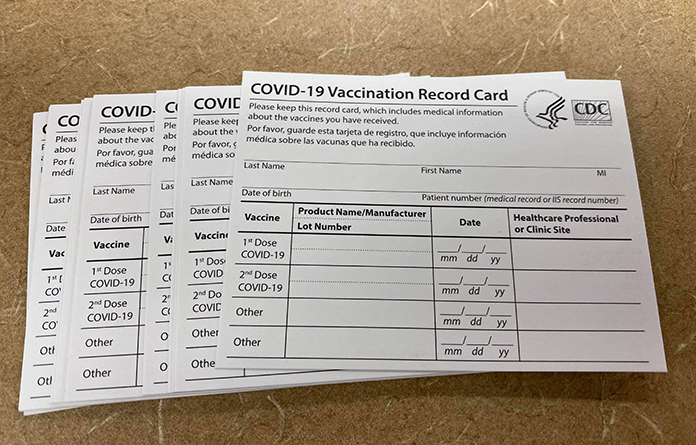
TRENTON – School districts will report vaccination data of staff and students to the State Department of Health in order to increase rates of vaccinated children.
The move comes per an executive directive from Health Commissioner Judith Persichilli. The Department will collect the information and analyze it for trends, said Donna Leusner, Director of Communications for the NJ Department of Health. When the data is complete, the DOH will share it on their website. Names and other identifiers will not be disseminated.
The Department of Health continues to state that a combination of vaccination for those who are eligible, testing, masking, physical distance, handwashing, and staying home when sick are the best strategies for keeping schools safe.
For a few months, the Pfizer vaccine has been approved for use on children 12 and older, and health officials are urging them to take advantage of it. The state has been reaching out to local leaders to set up vaccination clinics in large spaces.
Leusner noted that Ocean County has had clinics at schools (Toms River High School North and Southern Regional Middle School in Stafford) and also at venues like Six Flags Great Adventure in Jackson.
Vaccination clinics at schools are optional for districts, she said.
“The Department of Health will work closely with participating school districts to identify vaccine providers equipped to administer doses in the school setting,” she said.
Persichilli said at a recent governor’s press conference on the coronavirus that about 57 percent of children ages 12-15 have received at least one dose. However, for 16- and 17-year-olds, 70 percent have received at least one dose.
That’s where the outreach comes in, Leusner said. By learning what communities have lower vaccination rates, the state can direct support to those areas to try to get those numbers higher.
The support would take the form of enrolling family physicians or pediatricians as vaccine providers and working with schools to host clinics. Resources would also be directed toward educating the population about the importance of getting vaccinated.
“We’re working diligently with these schools and local officials in every municipality to identify those individuals and try to encourage them and their parents to line up and get a shot in the arm. Overall, I’m pleased where we’re going with kids, but … I wish the younger kids had higher levels of vaccination,” Persichilli said.






